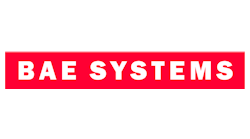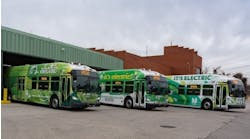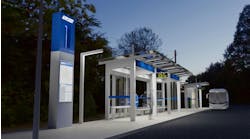TCAT riders will get the chance to experience clean, green, cutting edge technology on hydrogen fuel cell bus that will be added to the Ithaca based transit agency’s fleet – likely within the next 12 to 18 months.
The U.S. Department of Transportation’s Federal Transit Administration top official today announced $13.6 million in federal funding to advance the commercialization of American-made fuel cell buses for the transit industry through FTA’s National Fuel Cell Bus Program.
TCAT is the integral partner in what is known as the Central New York Fuel Cell Transportation Program, which is set to receive nearly $3.17 million out of the $13.6 million round of funding. Project manager Jason Hanlin said the bus alone costs around $1.2 million dollars, but he and other industry proponents are hoping to create more demand and drive down the cost to make the clean technology affordable to all transit agencies. TCAT’s role will be to demonstrate the technology’s many attributes, namely zero tailpipe emissions as well as a smooth, quiet ride.
“Federal investments in fuel cell technology and other green energy sources have been a tremendous catalyst for America’s innovators as they find new ways to power public transportation for the future,” Federal Transit Administrator Peter Rogoff said in a press conference Sept. 5 at BAE Systems in Endicott, N.Y., where he announced the grant recipients. With major population increases anticipated in the coming decades it is more important than ever that transportation focus on zero emission technologies.
“We can plan for that future or be overwhelmed by it and lose our quality of life,” Rogoff said at an early morning roundtable discussion involving industry, academic and policy leaders.
Although there are numerous details and exact timetables yet to be worked out, TCAT will be able to lease the bus at no cost for two years after which the agency may gain ownership – also potentially at no cost. TCAT has agreed to pay to maintain and operate the bus as it would for any other bus it would add to its fleet.
TCAT became involved in the proposed project more than a year ago after being approached by Paul Mutolo, co founder of The Standard Hydrogen Corp., as well as director of External Partnerships for the Energy Materials Center at Cornell University.
Standard Hydrogen Corp. hopes to not only serve as TCAT’s hydrogen supplier for the two year duration of the project, but also plans to establish a hydrogen filling station for the Ithaca, N.Y., area that will enable enable other fuel cell vehicles here to include privately owned vehicles, Mutolo said.
TCAT Service Development Manager Doug Swarts said the project will add to TCAT’s growing list of innovative accomplishments, such as it becoming the first transit agency in New York to install bike racks on its buses to building its own next generation fare collection system with local company, Brightworks Computer Consulting.
“We are looking forward to the day that we can dispatch the hydrogen cell bus, and, hopefully, turn some heads,’’ Swarts said.
TCAT has also embraced lower emission technology with the addition of hybrid buses and diesel buses that adhere to strict lower emission standards. At one point, TCAT also experimented using compressed natural gas (CNG), but lost its fuel source, thus ending the CNG program.
“It is only fitting that we take the next step and work with a bus with zero emissions,” Swarts said.
Swarts credited TCAT General Manager Joe Turcotte, TCAT Assistant General Manager Alice Eccleston, the TCAT Board of Directors and the Tompkins County community for creating an environment that nurtures growth, creativity and environmental sustainability.
Swarts noted that TCAT ridership continues to grow with the expectation of reaching up to or more than 4.5 million annual trips in 2013 – an incredible number for a system that serves a population of little more than 100,000.
Eccleston said, “This is exciting news for TCAT to be on the leading edge of new cleaner technology that is important not only for our organization, but for our country,” she said. “Reduction in the use of fossil fuels is critical to both our economic and environmental well being,”
The national program has provided nearly $90 million since 2006 to speed the development of fuel cell technology by tapping American innovation and bringing more opportunities to American manufacturers, according to the FTA.
“The Obama Administration is committed to investing in projects that bring cleaner, greener transportation options to more Americans and help our nation compete globally in the 21st century,” said U.S. Transportation Secretary Anthony Foxx in a press release “These investments will continue to expand innovative transportation alternatives so people across the country can get across town safely and efficiently.”
Funding for the projects announced today will be managed by CALSTART and the Center for Transportation and the Environment, two non-profit organizations that are responsible for developing and managing projects as part of the National Fuel Cell Bus Program.



